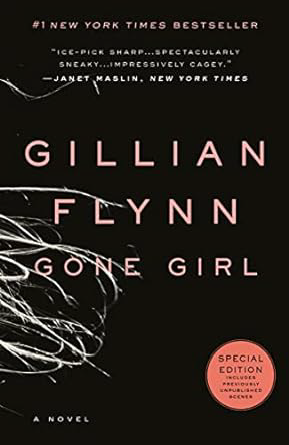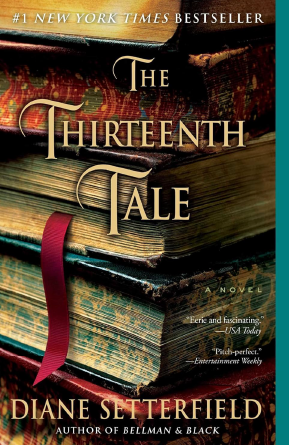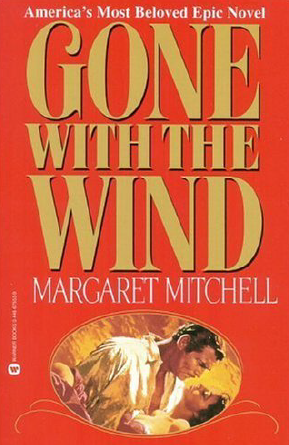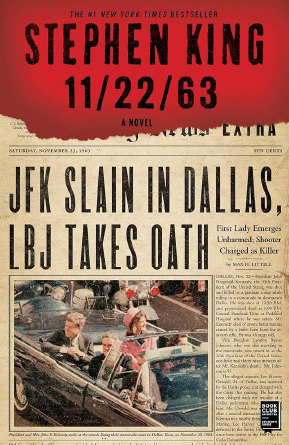
In the previous issue of Word Power, we explored how the opening of a book could ignite the reader’s immediate desire to delve deeper into its pages. While experiencing love at first line is thrilling, sustaining that enchantment poses a greater challenge. Many brilliant works, despite their fascinating beginnings, stumble towards the end. Now, let’s immerse ourselves in the vibrant worlds of four novels that stick the landing and leave upon us an indelible impression.
Gone Girl by Gillian Flynn


Gillian Flynn’s Gone Girl is a psychological thriller that plunges us into the tumultuous world of Nick Dunne, who becomes the prime suspect when his wife Amy vanishes on the fifth anniversary of their wedding. Narrated from Nick’s present-day perspective and through Amy’s haunting diary entries, the story unfurls with a gripping investigation into her disappearance.
As the story progresses, it becomes evident that at least one of them is playing a deceitful game. Perhaps they both are. The finale is nothing short of spine-chilling. Just when we think we have untangled the web of lies, Flynn deftly throws us a curveball, shattering our assumptions and leaving us bewildered and unsettled. It is a great example of a novel with a twist ending that demands an immediate re-reading to appreciate how everything falls into place. With a propulsive plot, compelling characters and a jaw-dropping twist, Gone Girl establishes a new standard for modern psychological thrillers.
The Thirteenth Tale by Diane Setterfield


Diane Setterfield’s debut novel, The Thirteenth Tale, follows the heroine in unravelling the mysterious life of the reclusive author Vida Winter. What Winter discloses is a history of madness, murder, incest and darkest secrets. It is a spellbinding tale featuring a dilapidated house, an ancient library, faithful old retainers, a scheming governess, twins who communicate in a language of their own, and a ghost.
When the truth is revealed, readers realise Winter’s family story is not just strange, but tragic in many ways. As the story draws to a close, all threads of the narrative, from subtle clues to recurring motifs, converge in a satisfying culmination. Early in the book, the protagonist declares, “I read old novels. The reason is simple: I prefer proper endings.” Setterfield has, in a sense, written a magnificent old novel with a proper ending.
Gone with the Wind by Margaret Mitchell


Set against the backdrop of the American Civil War, this timeless saga of love and loss has won the hearts of readers since its publication almost 90 years ago. Central to its allure is Scarlett O’Hara, a young and headstrong Southern belle. Not so much a conventional heroine, she is vain, greedy, manipulative but also determined and relentless. As Scarlett wanders through a land torn apart by war, we witness her transformation from a coquettish girl into a resilient woman who defies societal norms and fights tooth and nail for survival. Somehow, she always ends up doing the right thing for the wrong reason and becomes the protector of other people.
The novel’s conclusion marks a pivotal moment in Scarlett’s odyssey, where she finally overcomes her girlish infatuation and realises what truly matters to her. The story ends with her memorable last line: “After all, tomorrow is another day!” Much to the disappointment of fans who clamoured for a sequel, Mitchell adamantly refused to pick up where she had left off, in the same icy finality of the parting words of Scarlett’s husband: “My dear, I don’t give a damn.”
11/22/63 by Stephen King


Stephen King is a master of storytelling, and his novel 11/22/63 is a perfect example of his ability to craft a mesmerising narrative with an unforgettable ending. The narrative centres on Jake Epping, a high school teacher reluctantly thrust into a time-travelling adventure with a singular mission—to prevent the assassination of President John F. Kennedy on that fateful day, 22 November 1963. As we journey alongside Jake, we are swept up in the complexities of altering history, experiencing the highs and lows of his quest with bated breath.
The final dance between Jake and the love of his life is heartbreaking, and we will realise that the book is actually a love story in disguise. It has a bittersweet ending that makes us reflect on the intricacies of time and the weight of choices made and not made. King’s descriptive prowess and narrative depth ensure that 11/22/63 is not just a well-researched historical novel to be read, but an experience to be lived—one that invites contemplation and stirs up emotions long after the last page is turned.
Frank Herbert, the author of the groundbreaking Dune series, has the most insightful commentary on endings: “There is no real ending. It’s just the place where you stop the story.” Indeed, each book is a cosmos of its own. It will go beyond the final page, if only in our imagination.










